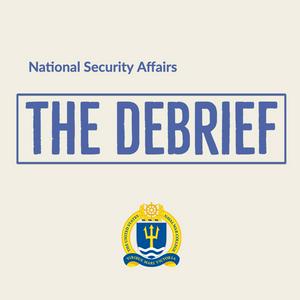The Honorable Christopher R. Hill had a distinguished career at the U.S. Department of State, serving as a five-time ambassador and diplomat at the center of some of the most consequential challenges in American foreign policy. Over three decades in the Foreign Service, which he joined in 1977, Ambassador Hill's career propelled him into high-stakes negotiations with some of America’s most intractable adversaries, from helping lead negotiations in the 1990s that ended the war in Bosnia to serving as the senior U.S. negotiator to the Six Party Talks, which sought to end North Korea’s nuclear weapons program in the mid-2000s. In 2009 and 2010, Ambassador Hill led the U.S. Embassy in Baghdad as the United States wound down its combat mission in Iraq, and in March 2022, the Senate confirmed Ambassador Hill for a fifth time to a U.S. posting abroad, this time to serve as ambassador to Serbia mere weeks after Russia’s full-scale invasion of Ukraine. This followed a period when he served as Dean of the University of Denver’s Josef Korbel School of International Studies, where he wrote The Outpost: A Diplomat at Work. He joins The Debrief to reflect on his distinguished diplomatic career after delivering the 2025 convocation address at the U.S. Naval War College.


